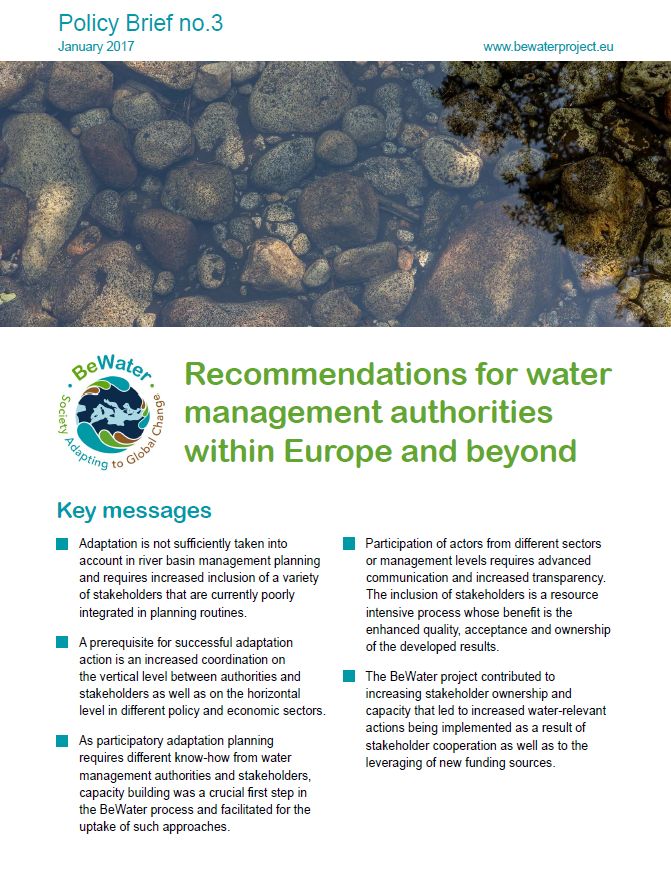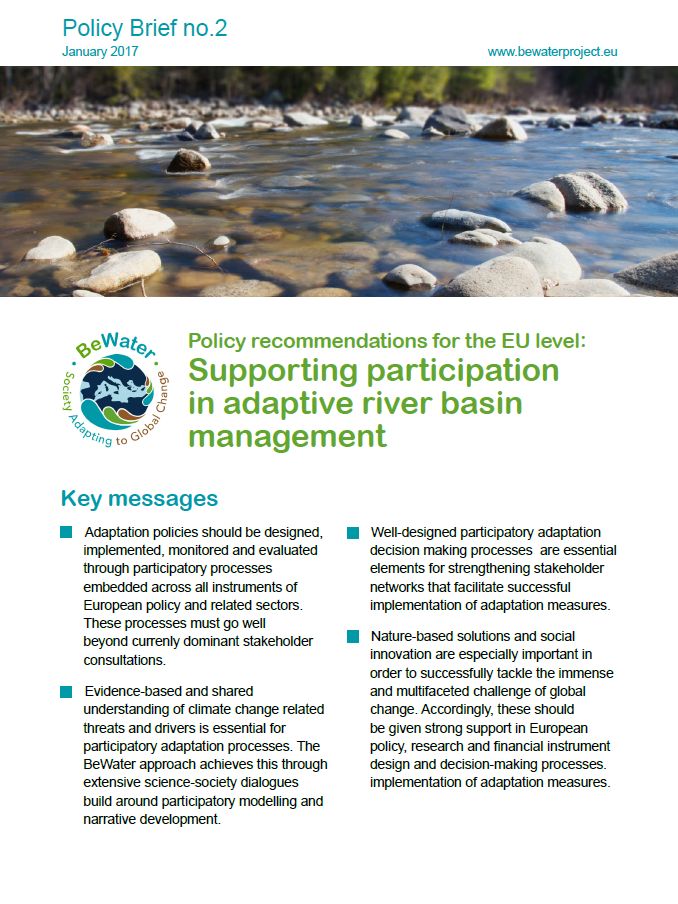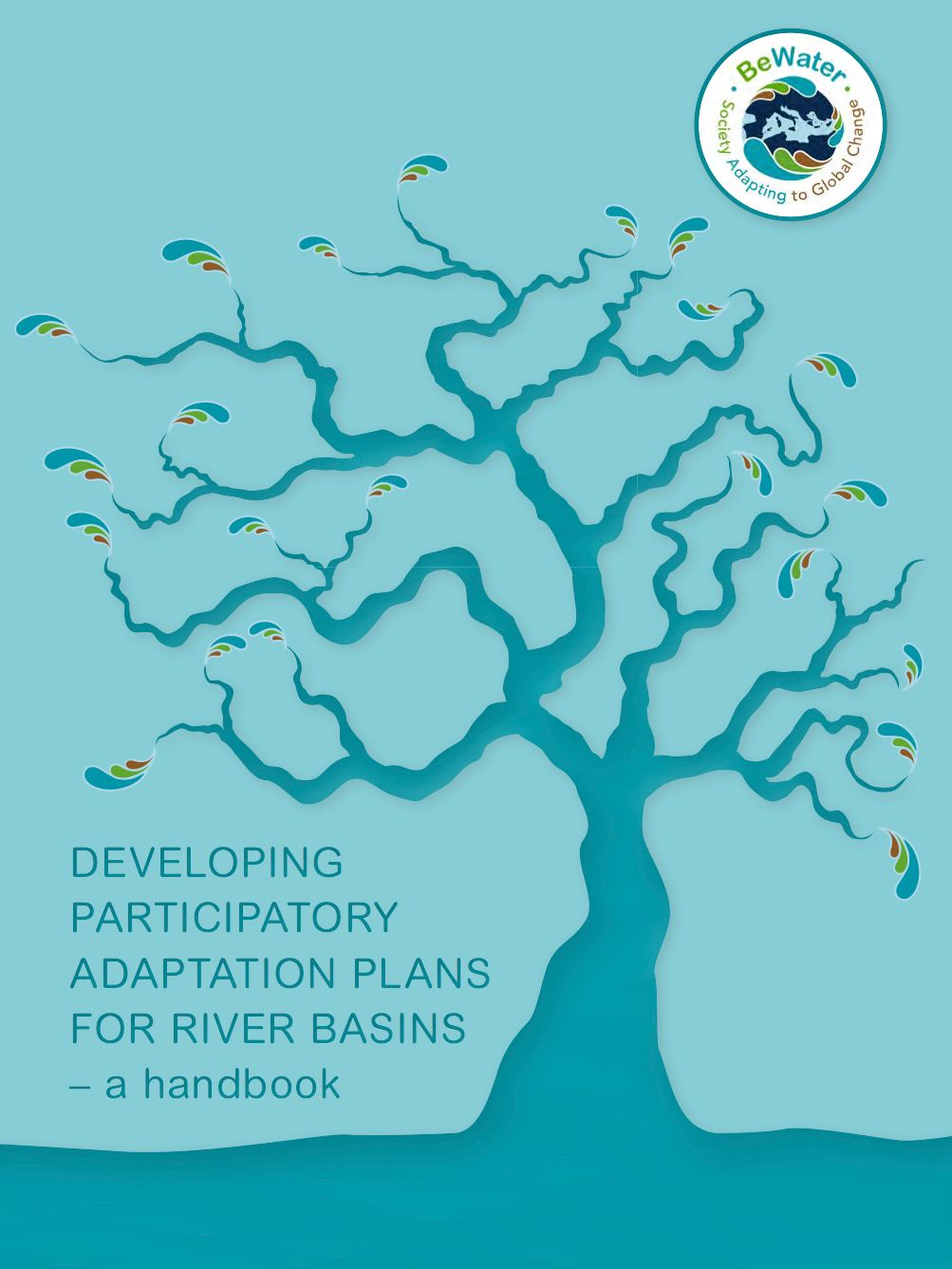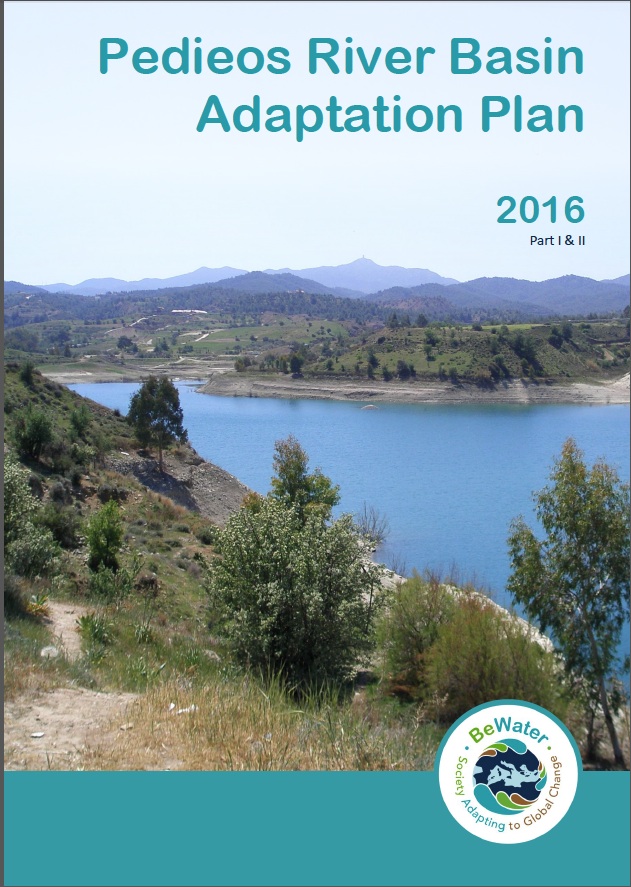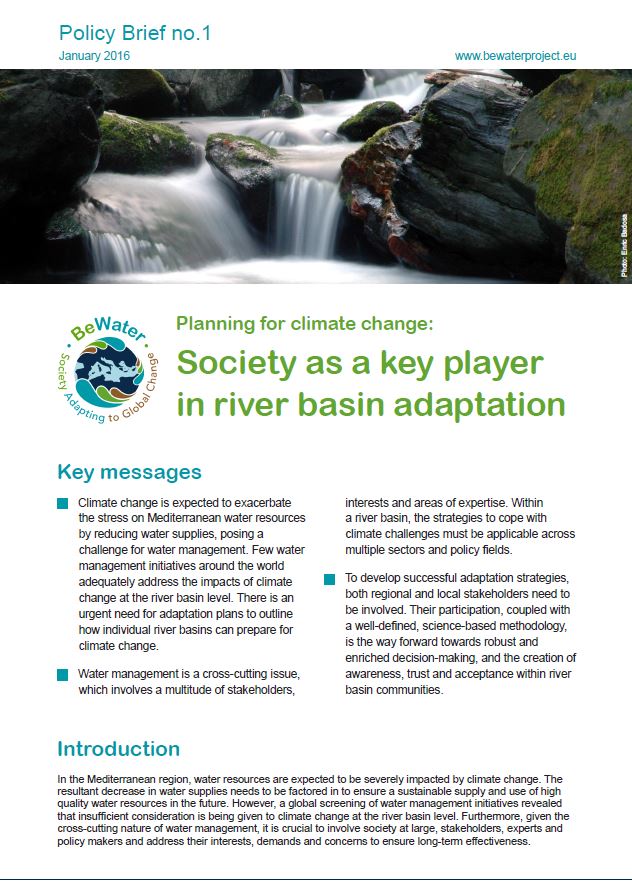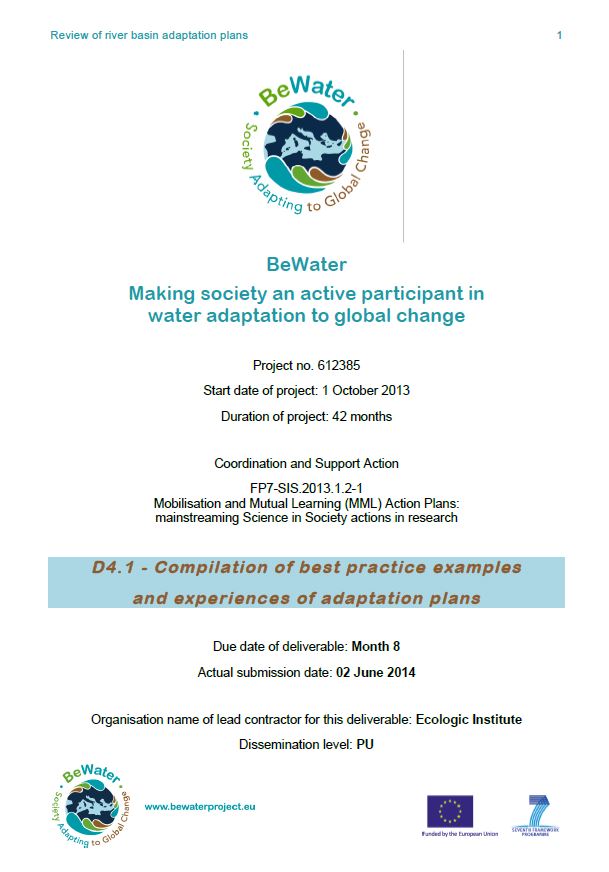River Basin Adaptation Planning through Stakeholder Engagement
- Event
- Date
-
- Location
- Brussels, Belgium
- Speaker
Engaging stakeholders in adaptation planning is widely considered to enhance the degree of acceptance and political relevance of environmental policy measures; yet significant room exists for improvement in the design and implementation of stakeholder participation in decision-making processes. A European Policy Event entitled "Implementing COP22 agreements: River basin adaptation planning through stakeholder engagement" was organized by Ecologic Institute within the EU-funded BeWater project to address this topic. The event's key messages and European policy recommendations are available for download.
The event, held in Brussels on 9 February 2017, aimed to foster adaptation planning at river basin level by demonstrating the critical value of stakeholder engagement and to articulate politically relevant recommendations to inform ongoing work in the aftermath of the COP 21 and 22. The half-day programme was comprised of targeted presentations and two panel discussions. A set of key policy recommendations formulated within the BeWater project and experiences from other European projects served as the foundation for the event. Accordingly, panel speakers included esteemed members of the BeWater team from each of the project’s four case study river basins (Rmel, Tunisia; Pedieos, Cyprus; Tordera, Spain; Vipava, Slovenia) as well as:
- Ms. Anabel Sánchez (Centre for Ecological Research and Forestry Applications), BeWater Project Co-ordinator
- Prof. Muki Haklay (Co-director of Extreme Citizen Science), expert in participatory mapping methods and citizen science
- Mr. Bjørn Bedsted (Deputy Director of the Danish Board of Technology), expert in public engagement within the field of climate change adaptation
A set of key messages and European policy recommendations were derived from the event, and are summarized briefly. These aspects have also been elaborated in more detail in a flyer, which is available for download below.
- 'Adaptation' should be understood not merely as a technical approach to build resistance and resilience, but rather as a wider political and social process with the potential to deliver a range of additional benefits
- Small scale, replicable interventions should be funded and supported by the European Union to achieve wider-reaching adaptation impact
- Forms of engagement need to be strategic about participant selection and the scale/scope of desired involvement
- There is a need to actively consolidate and mandate the sharing of experiences and information gained across EU-funded projects to feed more directly into political processes
- There is a need to increase the political will for truer forms of participation within adaptation decision-making processes, and for a subsequent reform of governance process
- Defining clear goals about what ‘participation’ means in the process is crucial for ensuring legitimacy, political uptake and sustained engagement




